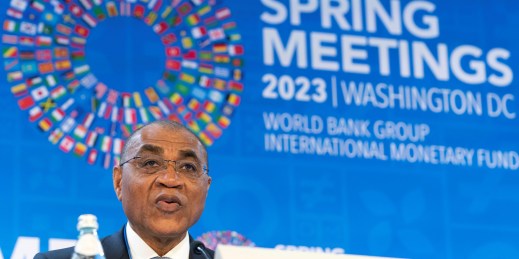Latest Archive
Free Newsletter
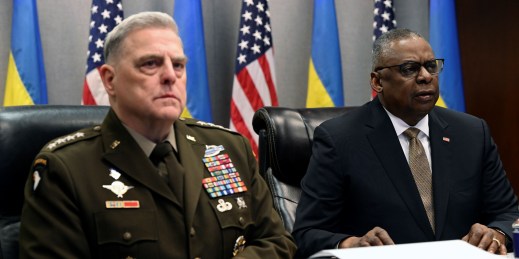
Classified U.C. intelligence documents revealing secret plans related to the Ukrainian military were leaked across social media channels last week, taking U.S. government officials by surprise. While it will likely have no influence on the course of the war, the leak offers insights into how the war is playing out.
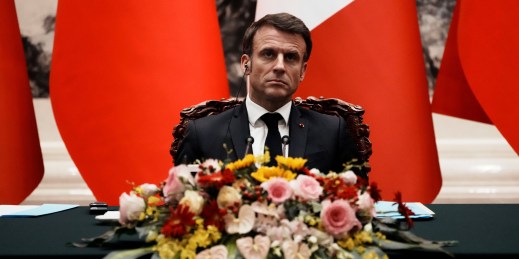
Observers across Europe reacted furiously to remarks French President Emmanuel Macron made last week imploring Europe not to behave like “vassals” of the U.S., amid its intensifying geopolitical competition with China. But the reaction by European capitals to Macron’s statements are more revealing than his original remarks.
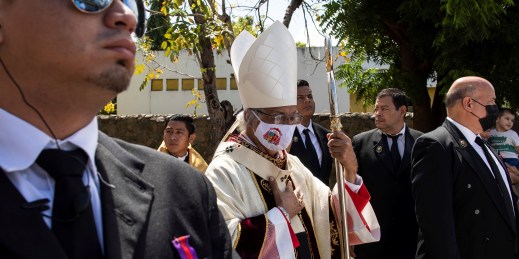
Friction between Nicaraguan President Daniel Ortega and the Catholic Church is not new. But tense relations reached boiling point during Easter celebrations last week with further arrests in Ortega’s latest brazen crackdown, putting the devout in the middle of a power struggle between two mighty forces.
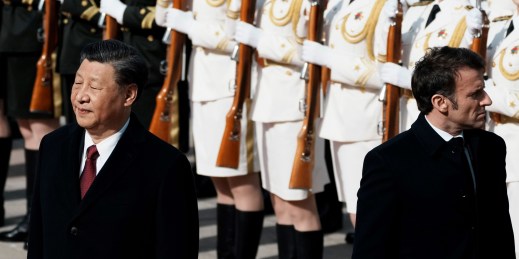
French President Emmanuel Macron embarked on a three-day state visit to China last week, during which the war in Ukraine, Europe’s ties with Beijing and trade between France and China topped his agenda. But Macron’s messaging during the trip was confusing and raised questions about his vision of European strategic autonomy.
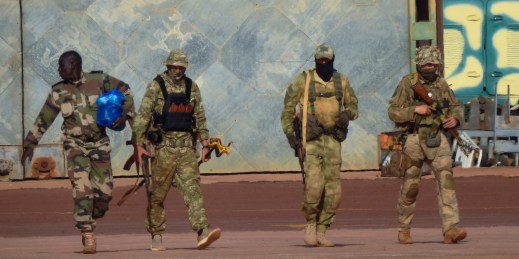
Mali’s government is struggling to assert its authority as more communities fall to various Islamist groups. After a decade of faltering counterinsurgency efforts, it might be time to take a closer look at the biggest obstacle to stability —the Malian state’s chronic inability to counteract shadow governance structures.
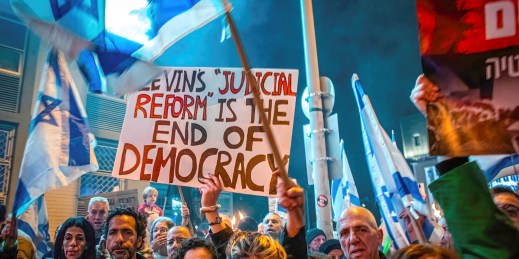
The recent protests that erupted across Israel in opposition to a proposed “judicial reform” put the spotlight on an increasingly prominent issue: the politicization of the judiciary. More and more, democratically elected governments around the world have been dismantling checks and balances to undermine judicial independence.
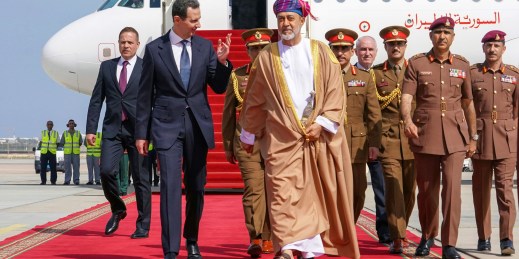
Syrian President Bashar al-Assad’s gradual emergence from diplomatic isolation has gained further momentum with his country’s reestablishment of official relations with Saudi Arabia. But Syria’s isolation may not be over quite yet, despite the seeming progress Damascus has made in engagement with its regional neighbors.
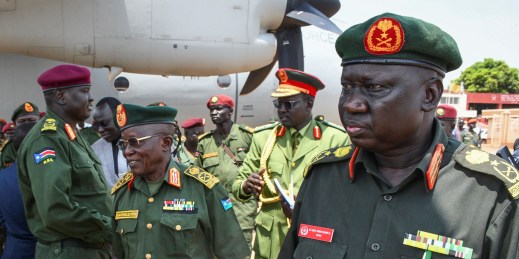
A recent report from the U.N. Commission on Human Rights in South Sudan documented terrible human rights violations taking place in the country, named individual perpetrators and called for prosecutions. But certain obstacles could prevent the International Criminal Court from being the venue for such a trial.
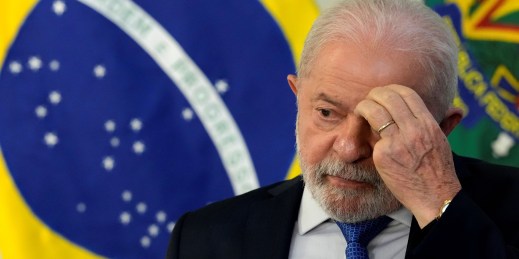
One hundred days into his new term in office, Brazilian President Luiz Inacio Lula da Silva is returning to familiar policy approaches in an effort to restore Brazil’s regional and global leadership. But a difficult domestic political and economic environment may constrain his foreign policy ambitions.
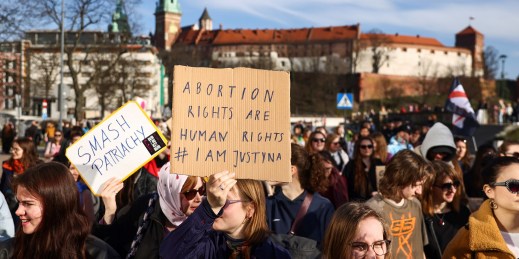
The unprecedented case of an activist being sentenced for providing another woman with abortion pills has put Poland’s near-total ban on abortion back in the spotlight. It could also make abortion a major topic ahead of parliamentary elections due this fall, highlighting the country’s split between liberals and social conservatives.
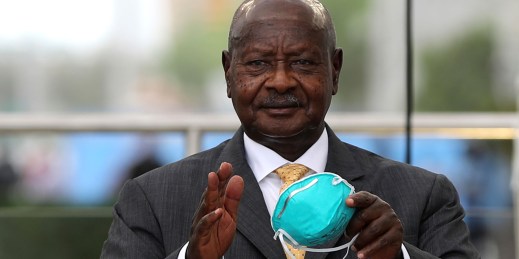
Few Ugandans alive today have memories of any other leader besides President Yoweri Museveni, who has ruled the country for 40 years. But for now, there is no certainty that Museveni plans to step down, nor is there a succession plan to facilitate an orderly transition that would preserve peace and stability in the event he does.
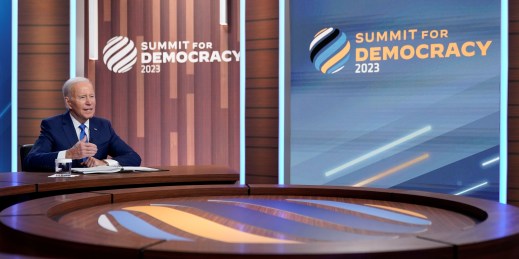
With everything that happened last week, one could easily have missed what is nevertheless an ostensibly central pillar of President Joe Biden’s foreign policy: the second Summit for Democracy. Some critics say the summit risks becoming an “inconsequential talk shop.” In fact, it has already crossed that line.
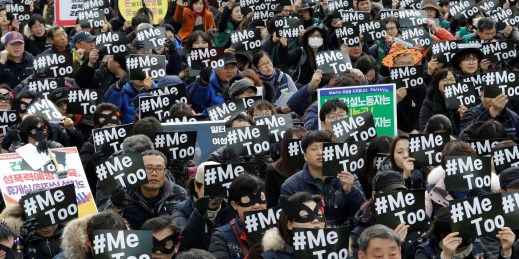
South Korea is emblematic of East Asia’s well-documented coming demographic crisis. Yet while the issue has preoccupied successive governments, including that of current President Yoon Suk Yeol, their proposed policy responses have failed to address the root of the problem: the country’s still-pervasive traditional gender roles.
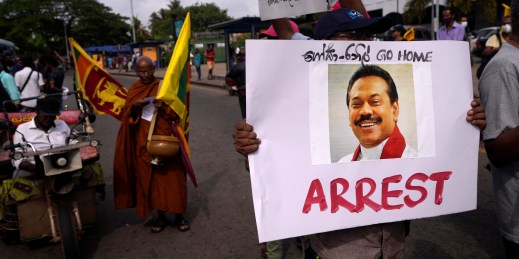
A year after mass protests forced the resignation of the government, Sri Lanka is making some progress on its economic and debt crises. But the country is not out of danger. Its humanitarian crisis is far from over, and some of the forces that helped create the catastrophe are still embedded in the country’s centers of power.
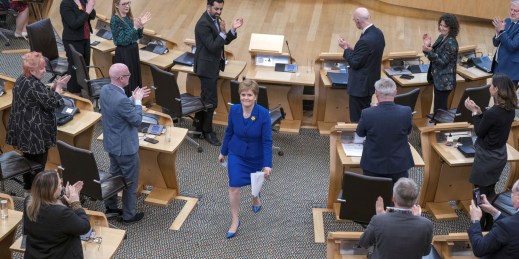
The sharp divides that emerged in the Scottish National Party’s recent leadership election reflected the extent to which factional tensions were long held in check through hopes that Scottish independence could be achieved soon. Yet in the past 18 months, this sense of political self-confidence within the SNP has gradually dissipated.
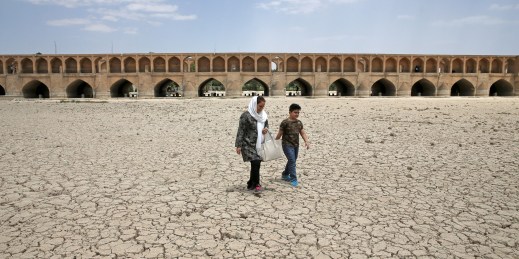
The U.S. and Europe are poorly positioned compared to China to engage in diplomacy to bridge the Middle East’s security divides. But there is a diplomatic initiative they could pursue that would reassert their relevance and address a key issue that is in desperate need of attention in the region: the threat of climate change.

